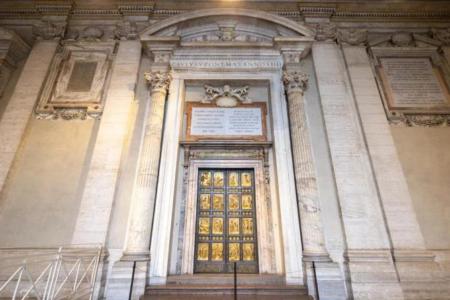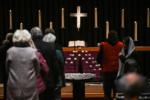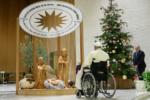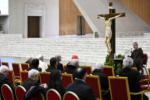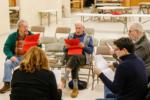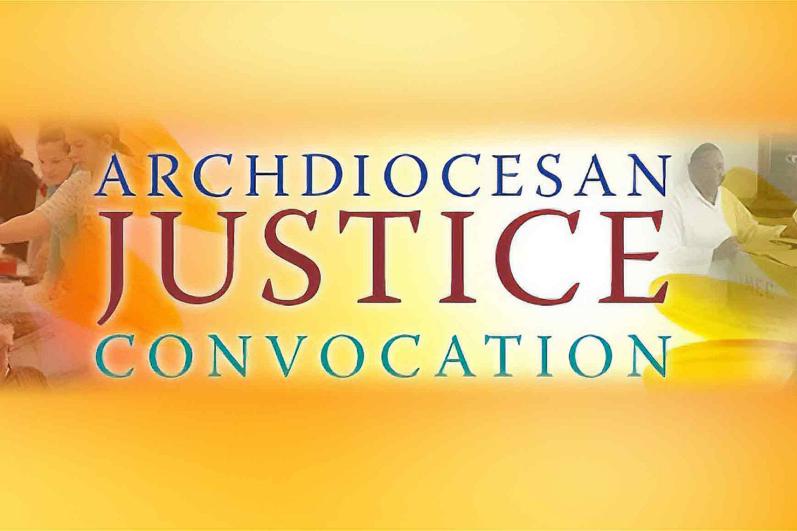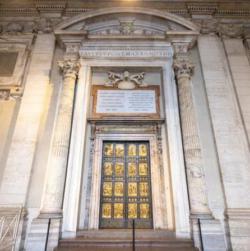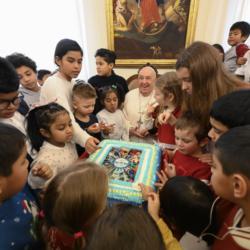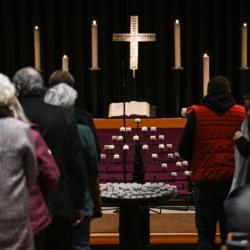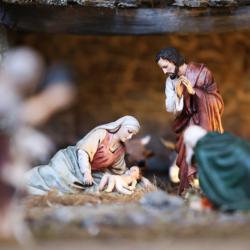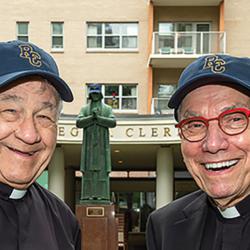Social Justice Convocation tackles question 'why does poverty exist?'
BRAINTREE -- Donnette McManus was living her best life. The Brockton resident had a master's degree and a job good enough to support her 11-year-old son, with the help of her sister Kimberly. When Kimberly died in childbirth, McManus became the mother of her children. She now needed to support a family of four on a single income.
McManus turned to the Catholic Charities food pantry in Brockton. Since receiving their help, she and her family volunteer at the pantry on a regular basis.
Greater Boston Food Bank COO Cheryl Schondek told McManus's story during the Archdiocese of Boston's 15th annual Social Justice Convocation, held virtually on Oct. 21.
"The Catholic Charities food pantry embraced Donnette as a sister to support feeding her family," Schondek said.
"Why does poverty exist?" and "What can we do together to alleviate the root causes of poverty?" were the themes of the convocation, which tackled three issues linked to poverty in Eastern Massachusetts: housing, hunger, and immigration. Schondek addressed the topic of hunger, Archdiocesan Planning Office for Urban Affairs President Bill Grogan addressed housing, and Catholic Charities Boston President Kelley Tuthill addressed immigration.
Father Bryan Hehir, archdiocesan secretary of health and social services, described the three issues as a "moral triangle" that must be dealt with together as well as separately. He warned that facts and statistics only hint at the human toll of each issue.
"Complex policy issues do not have simple moral answers," he said, "where we can simply understand what ought to be done, without understanding the empirical complexity of what it takes to get things done."
The convocation began with a prerecorded Mass at the Cathedral of the Holy Cross, celebrated by Cardinal Seán P. O'Malley before his departure to Rome to participate in the Synod on Synodality.
In his homily, Cardinal O'Malley said that refugees, the poor, and the homeless "have special claim onto our lives" regardless of their ethnicity or religion.
"That schizophrenic homeless man is Jesus Christ in a distressing disguise," he said, "and how do we know that? Because Jesus Christ told us."
After Mass, Grogan spoke about his work in the Planning Office for Urban Affairs, a nonprofit affordable housing developer and social justice ministry of the Archdiocese of Boston.
"At the core of our mission is that housing is a human right," he said, "and it's a human obligation that everyone has a roof over their heads."
Since its founding in 1969, the office has provided homes for over 10,000 people, with special emphasis on housing for seniors, veterans, and the formerly homeless. It is projected that Massachusetts will have to build 200,000 housing units over the next seven years in order to keep up with demand.
Low housing supply has caused costs to skyrocket. According to Grogan, workers making minimum wage in Massachusetts would have to work 100 hours a week to afford an average two-bedroom apartment.
"Homelessness is a structural problem," he said, "and the fundamental causes of homelessness lie in the high cost of housing that we're seeing."
Grogan called not only for new affordable housing but for more shelters for families who find themselves priced out of their homes.
"Doing so is a moral imperative to save lives," he said.
He has found that building affordable housing "is not as easy as it should be" due to financial hurdles, high construction costs, and residents who oppose development.
Currently, POUA is trying to acquire the Constitution Inn in Charlestown from the Greater Boston YMCA and convert it into 140 units of affordable housing. Forty of the units will be set aside for vulnerable women and veterans, in collaboration with Boston's St. Francis House shelter.
POUA is also working with St. Katharine Drexel Parish in Roxbury to develop Drexel Village, 217 units of mixed-income housing with 130 set aside for formerly homeless and low-income residents. Drexel Village will also feature a public park for community gatherings, and a garden to grow food for the St. Katharine Drexel food pantry.
"A critical part of this has been the partnership with the parish," Grogan said. "At the same time, it will create a new prominent position in the community for the parish."
In her remarks, Schondek said that in one of the richest states in one of the richest countries in the world, one in three residents doesn't have enough food. Inflation and the COVID-19 pandemic have made the situation even worse for the Greater Boston Food Bank, which operates in 190 municipalities from Cape Ann to Cape Cod. The food bank fed over 600,000 people this month, and Schondek wants to increase that number to 1 million.
In her talk, Tuthill described the impact that the recent influx of migrants has had on Catholic Charities shelters. There has been a 103 percent increase in families seeking shelter in Massachusetts over the last year, most of them from Haiti. Even after the emergency opening of a new shelter, the Catholic Charities Inn, there is little room left. In an Oct. 23 letter, Cardinal O'Malley said that parishes may have to temporarily open their doors to migrants this winter. Eighty percent of migrants are in groups that include pregnant women and children, and a few babies have been born in Catholic Charities shelters.
Along with shelter, Catholic Charities has provided English translators, case management, food, and community resources to migrants. Catholic Charities legal teams have been working to get migrants authorized to work in the U.S.
Tuthill quoted one migrant as saying: "We traveled miles by foot through a rainforest to come to this great country and give our daughter a better life. Thanks to Catholic Charities, we know what we are doing, and we will keep on learning good things to have a big opportunity to a better future."
The convocation also heard from Sahar Joya, an Afghan refugee whose family resettled in Boston with the help of Catholic Charities and Holy Name Parish in West Roxbury. Hoya fled Afghanistan when it fell to the Taliban in 2021.
"I was forced to leave my country after a tragic and chaotic takeover," she said. "The tragedy really uprooted us mentally and physically."
Hoya is now 20 years old and a senior at Cathedral High School in Boston. Currently, Afghanistan is the only country in the world that bans girls from attending school.
"Since living in Boston," she said, "I have learned a lot that has impacted my life culturally and socially."
Father Hehir told the convocation that the biblical demands to welcome the stranger, feed the hungry, and house the homeless are based on a single constant: recognizing the dignity of every human life.
"Each person is the image of God," he said, "and we are called through moral responsibility to meet the fundamental demands of love, protection, respect, and devotion to that dignity."
